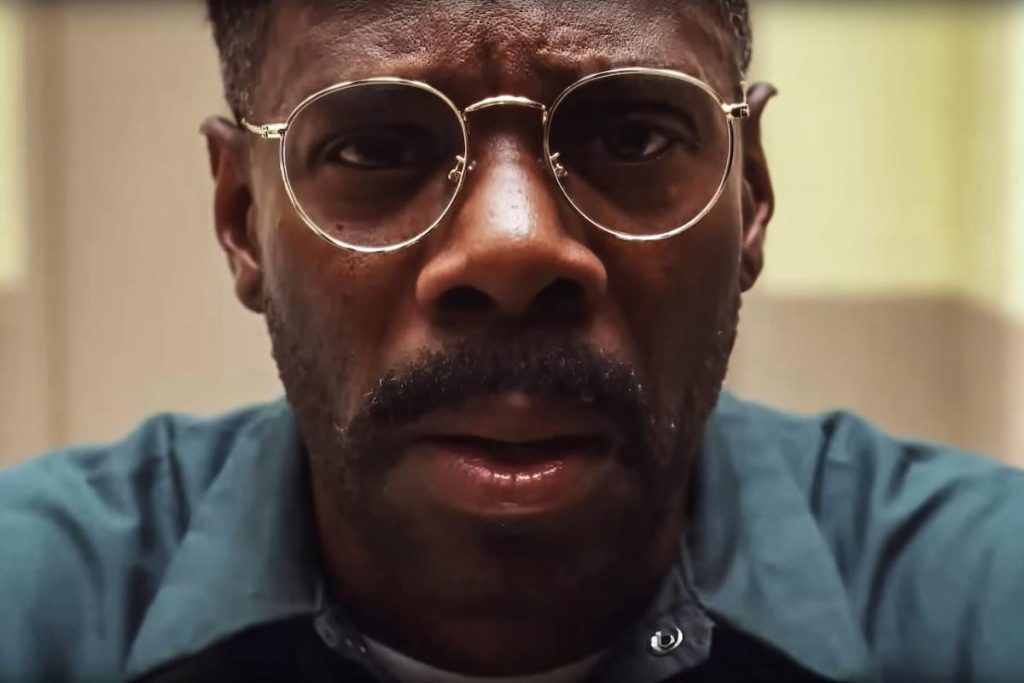“Sing Sing,” a film now available on various VOD platforms like Amazon Prime Video, is a powerful and moving drama that has been unjustly overlooked despite its brilliance. The movie follows the Rehabilitation Through the Arts (RTA) program at New York’s Sing Sing prison, where incarcerated individuals find solace and purpose through theater. The film features several real-life actors from the RTA program, adding a layer of authenticity to its story. Despite its critical acclaim, “Sing Sing” was mismanaged during its release, limiting its visibility in theaters and, consequently, its Oscar recognition. While Colman Domingo earned a Best Actor nomination and the screenplay received an Adapted Screenplay nod, the film’s exclusion from the Best Picture and Best Supporting Actor categories feels like a missed opportunity.
The film’s narrative is deeply intertwined with the lives of its characters, particularly Divine G (played by Colman Domingo) and Divine Eye (played by Clarence “Divine Eye” Maclin). Divine G, a seasoned participant in the RTA program, is a natural leader who has found his voice through theater. His relationship with Mike Mike (Sean San Jose) is particularly heartfelt, as the two share a bond forged through their shared experiences both on and off the stage. Divine Eye, on the other hand, is a complex figure who initially presents himself as tough and intimidating but slowly reveals his vulnerability through his performances. The dynamic between these two characters is one of the film’s most compelling aspects.
The story unfolds as the RTA group prepares for their next production, a wildly imaginative play that blends gladiators, pirates, cowboys, Egyptian mummies, and even Freddy Krueger. While Divine G initially wants to tackle a heavy drama, the group decides on a comedy to provide some much-needed escapism for their audience. This decision sets off a chain of events that exposes the deeper emotional struggles of the characters, particularly Divine G and Divine Eye. As the play comes together, the film delves into the personal journeys of its characters, including Divine G’s efforts to prepare for his clemency hearing and Divine Eye’s search for identity and redemption.
“Sing Sing” draws inspiration from films like “The Shawshank Redemption” and “Ghostlight,” but it carves out its own unique identity through its thoughtful storytelling and nuanced performances. Colman Domingo delivers a standout performance, bringing depth and emotion to his portrayal of Divine G. Clarence Maclin, however, is the true revelation of the film, as he captures the complexity of Divine Eye with remarkable subtlety. His performance is a testament to the transformative power of theater, both for the characters on screen and the real-life participants in the RTA program.
The film’s visuals are equally impressive, with director Greg Kwedar using grainy 16mm film and natural lighting to create a warm yet haunting aesthetic. The setting of the decommissioned prison facilities adds to the film’s authenticity, blending the harsh realities of incarceration with the beauty of artistic expression. The balance between the film’s hopeful message and its unflinching portrayal of the American prison system is one of its greatest strengths. It never shies away from the systemic injustices faced by the characters but also celebrates the resilience and creativity that help them survive.
Ultimately, “Sing Sing” is a must-watch for anyone who appreciates thoughtful storytelling, powerful performances, and a film that leaves a lasting emotional impact. It is a testament to the power of art to heal, inspire, and bring people together, even in the most challenging circumstances. With its rich characters, compelling narrative, and heartfelt message, “Sing Sing” is a film that will linger in your thoughts long after the credits roll.
